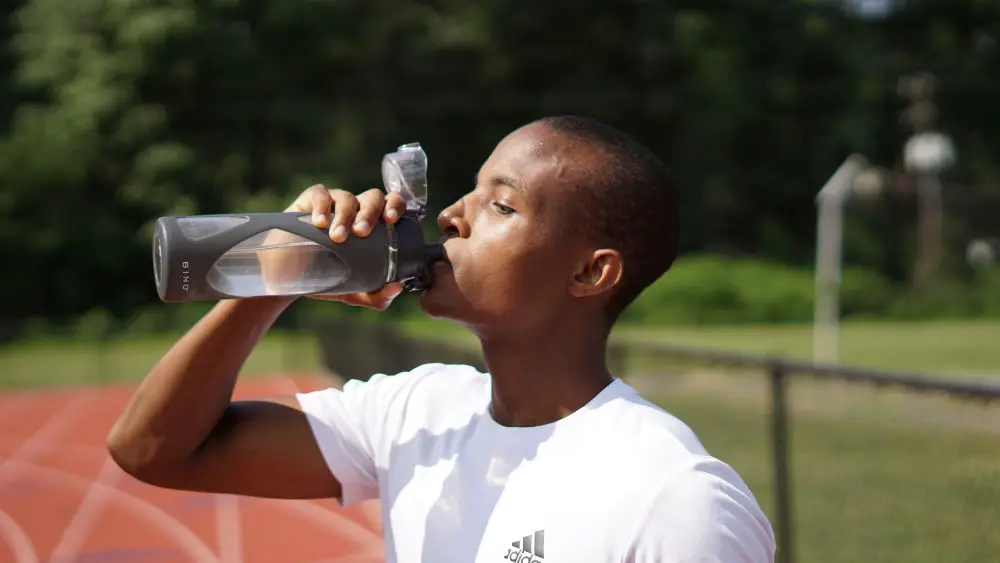This post contains affiliate links.

If there’s a time that is as important as race day, it is the day before the marathon. Even the best athletes can experience nervousness and cold feet as the clock ticks towards the main event. To ease your worries, I have prepared some tips on the things to do on your prep day for maximum performance and peace of mind.
Proper carb consumption, hydration, preparation, and relaxation go a long way to help remove stress before your run. These will help ready not only your body but also your mind and gear for the 26.2 miles (42 km) of track that you will traverse.
Let’s dive deep into the activities that will help you perform at your peak:
6 Important Things to Do Before a Race
1. Eat Food Rich in Carbohydrates
Food is the fuel of any marathoner. It not only provides nutrition to our body but is also responsible for shaking up our mood. In pre-race days when anxiety levels are highest, it is always a good idea to get good food to feel better.
Ever wondered why marathoners eat pasta a day before the race? Carbs, of course! For starters, carbohydrates serve as our body’s main supply of glycogen. Glycogen is consumed by skeletal muscles to use as fuel to get you through those 26.2 miles.
This is what makes carb-loading a useful tool for marathon preparation. It is simply the adequate increase of carbohydrate consumption for increased energy stocks.
Physicians recommend increasing your carb intake to around 3.6 to 5.5 grams of carbs for every 1 pound of body weight (8 to 12g per kg). When taken 3 to 4 days before the event, it leads to benefits in terms of maintaining running speed for longer periods. Take note that this does not increase overall speed. Rather, it’s your endurance that takes a positive leap.
Pasta is my go-to food when carb-loading. After all, it’s delicious, easy to prepare, available almost everywhere, and can be mixed with other healthy food such as tuna and veggies. You can opt for other carb-based food, but always avoid those that are high in fibre and fat!
2. Get Adequate Rest
Sleep and rest are as important as your diet and exercise. This is the only time that your body can fully repair itself, so never take it lightly. Part of your training should be employing a good sleeping routine and rest days.
I know it’s common to not have the best sleep before the day of the race. After all, you’re anxious to just get to the race. But, you can compensate for this by having ample rest during the week leading to the event.
Some good tips to take include avoiding blue light (from devices) during bedtime as well as eating too much before dozing off. Doctors recommend not eating 3 hours before going to bed to maintain proper digestion and promote sleepiness.
As always, you can create a routine that fits your preferences. If you prefer listening to sounds of nature, or soothing acoustic music to catch some zzzs, then go for it!
3. Hydrate Properly

Hydration, sleep, and diet goes hand-in-hand with each other. You cant expect to finish the race without proper usage of these basic preparations.
On the day before your race, hydrate as you would on any regular training day. This will remove the risks of your body adjusting to increased water consumption. If you consumed sports drinks on your pre-race runs, then do it also on the days before, during, and after the competition.
Overhydration is as dangerous as dehydration so take things easy and don’t overdo it. You don’t want to be bloated, or worse, peeing so much on the track.
4. Prepare Your Gear
Make sure that your gear is all set up to help you during the race. I highly recommend doing the gear prep two or three days before the race so that you only need to check-ups on prep day.
The marathon essentials that should be equipped are carb snacks, a hydration bottle, skin protection products, medical documents, and waist packs. If you can, pack up some tissue papers for hygienic purposes.
Make it a habit to check the possible weather conditions on the day of the event. Your clothing will heavily rely on this. If it’s rainy, then grab some windbreaker. If it’s scorching hot, then dress loose and light.
Here’s a short guide that will help you figure out what to wear on marathon race day in different weather conditions.
Remember to cut your toenails to make sure that they do not interfere with your performance.
Related post: Marathon Checklist: 12 Things to Pack for Race Day
5. Go Over Your Race Plan
A race plan consists of the strategy and methods that will help you finish the race. For beginners, the race plan should focus on finishing the track with ease. On the other hand, experts must lean more towards improving running time and pace.
Before the race, you must have a general idea of the nature of the course. Important things to take note of include elevations, hills, inclined angles, as well as terrain. This will help in knowing which parts of the course you should take easy on, as well as those that you might need to apply some effort to.
Furthermore, it also aids so that you will be familiar with the locations of comfort rooms. It is much better to be prepared for the worst as you never know when nature would call. This is especially true since you will be consuming lots of carbohydrates and fluids on the track.
Related post: How Long Do You Need to Train for a Marathon (Beginner to Pro)
6. Relax Your Mind
Mental preparation is a must day before you face the harsh trail. Many runners are fond of relaxing through a good book or movie to get their minds off race jitters. Some even go for spa and therapy sessions for maximum relaxation!
If you’re used to doing yoga, doing some yoga during this time is recommended as some sort of mental exercise. However, the day before the race is not the time to start your first yoga session. Yoga is considerably more difficult than most people think, and it can cause muscle soreness.
Should I Run the Day Before a Race?
Should I exercise the day before the race? Well, the answer is based on your preference. I like to run at an easy pace for around half an hour on prep day just to get my routines going. It helps calm my nerves and reminds me that I am prepared to take on the challenge I will face tomorrow.
However, I learned throughout the years to not overexert my body on my pre-race exercise. I’d rather not get worn down to avoid injuries and exhaustion during the marathon.
When in doubt, always remember that your weeks of endurance training are more than enough to equip you for the grueling 26.2 miles of running. As always, exercising on the day is optional, but if you opt to go for it, then just do some light sessions.
Things to Avoid
Here are the things you should avoid on the day before the marathon.
Avoid Alcoholic Drinks. A bottle of your favorite booze might sound refreshing, but science says otherwise. Alcohol reduces overall body performance as it acts like a depressant and sedative. Instead of being active on the track, your muscle and motor functions will slow down and you won’t be able to properly process oxygen.
Not only that, but your temperature levels will not be stable. This might lead to excessive sweating and dehydration which is very dangerous for a runner. If you’re planning to grab a drink, it’s better to reserve it for the post-celebration.
Overeating and Fatty Foods. Excessive food consumption must be avoided at all costs since it messes up your body’s equilibrium. Running when you overate results in a mountain of digestive issues that will make you slow and sluggish. Similarly, consuming fatty foods are also frowned upon since they require more time to digest.
Sleep overthinking. Unable to sleep well during race day? That’s perfectly normal! Everyone has experienced this at some point and you are not an exception. Overthinking about your sleep results in more anxiety and poor performance. Worry less, as the rest you have acquired throughout the week will compensate for your unfulfilled sleep.
How many days should you rest before running a marathon?
This varies from one individual to another, however, I recommend that you rest or slow it down 2-3 days before race day. But it doesn’t mean you should sit on the couch and do nothing.
A light 30-minute run 2-3 days before race day will help keep you relaxed and ready for your race without getting soreness or putting yourself at unnecessary risk for injuries.
It is also a good idea to prepare mentally during this recovery period. You are likely to become more irritated and uncomfy on the days leading to the race. So, some relaxation and mind-to-body exercises are beneficial in the long run.
Final Thoughts
What you do before the race boils down to your preference and routine. However, following these tips I prepared will surely improve your efficiency and reduce nervousness. As always, remember to be confident in your ability and to enjoy the marathon ahead of you!
